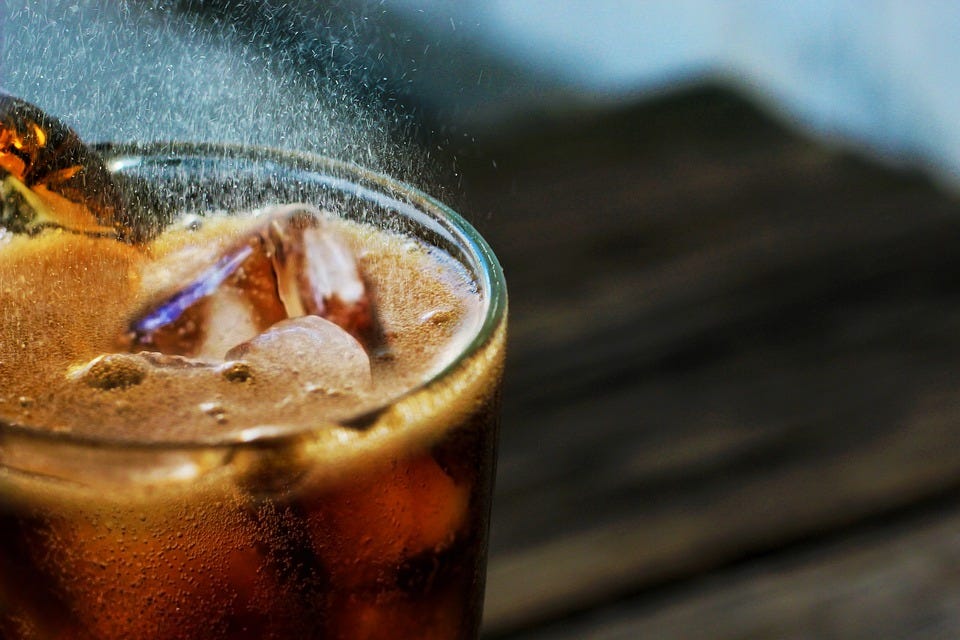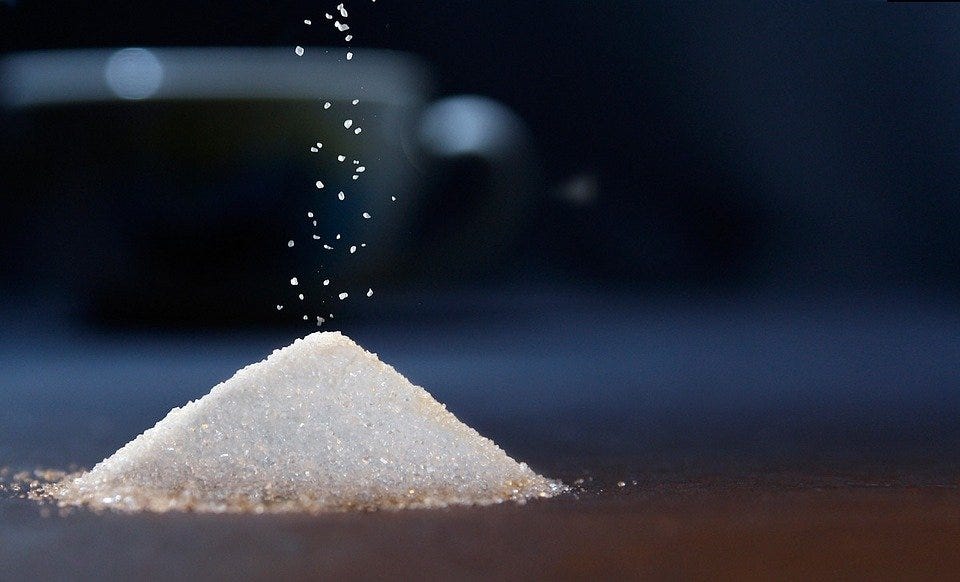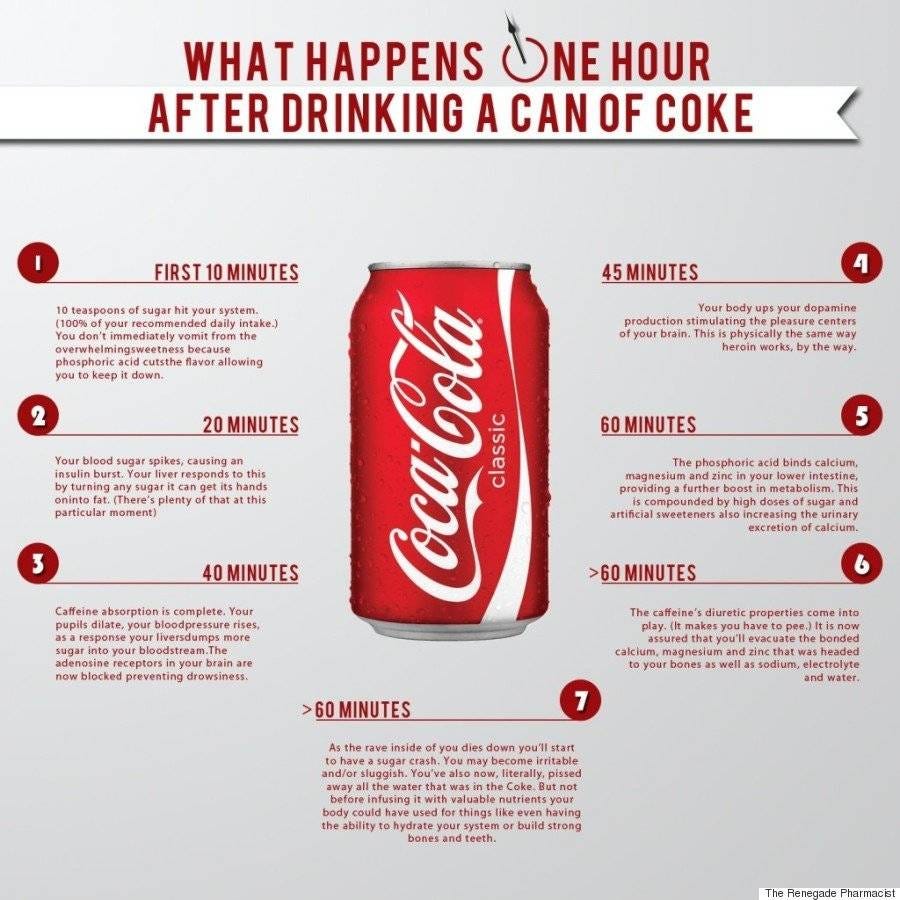Soft Drinks: The Link Between Liquid Candy And Disease
Soda, pop, cola, soft drinks: whatever you call them, research shows that their consumption in recent decades has increased diseases in a linear fashion.
Although soft drink consumption in the United States dipped from a high of 53 gallons person in 2000 to 38.87 gallons per person in 2018, the U.S. still has some of the highest consumption rates in the world.
A majority of Americans consume at least one sugary drink on a given day. A 12-ounce can of Coke contains 39 grams of sugar (about 10 teaspoons), which is more than 80 percent of the recommended daily intake for a healthy diet.
Excess sugar consumption has been associated with obesity, type 2 diabetes, heart disease, certain cancers, tooth decay, pancreatic cancer, nonalcoholic fatty liver disease, and more.
Soft drinks also lead to obesity. In 1964, five per cent of children were considered obese, while today, that figure is 20 per cent and rising. The sugar in pop is believed to cause a hormonal response in the body which promotes weight gain, suggested a study in the Journal of Clinical Endocrinology and Metabolism. Continuing to drink pop has been found to increase a child's chance of actually becoming obese by 60 per cent (2001 study from the Harvard School of Public Health).
The high-fructose corn syrup in soda is the cheapest, most processed sugar on the market and typically such concentrated amounts will wreck teeth. A Washington Post article mentioned a federally funded study of nearly 3,200 Americans aged 9 to 29, conducted between 1971 and 1974, showing this correlation. Numerous other studies have shown the same link throughout the world, from Sweden to Iraq.
There is also a strong association between cola beverage consumption and bone fractures in 14-year-old girls, says a 1994 Harvard study. Those who drank cola were about five times more likely to suffer bone fractures than girls who did not. University of Saskatchewan researchers in 2001 went one step further and stated that these girls may face a LIFE-LONG increased risk for fractures and osteoporosis.
Depressingly, it gets worse. Research from a British university suggests that sodium benzoate, (a common preservative used in large quantities to prevent mold in soft drinks such as Sprite, Diet Pepsi, Coca-Cola, and Dr Pepper), has the ability to switch off vital parts of DNA, eventually leading to diseases such as cirrhosis of the liver and Parkinson's (The Independent May 27, 2007).
It has also been known for years that sodium benzoate can produce benzene (a cancer causing chemical) when mixed with ascorbic acid (vitamin C). Benzene is associated with leukemia and other cancers of the blood (BBC News March 1, 2006, Times Online.co.uk, March 2, 2006).
Still not convinced? How does a diabetes link sound? A June 8, 2004 USA Today article stated that women who drink more than one can of soda a day increased their likelihood of developing type 2 diabetes by 85 percent over those who drank less. This is significant since the number of people with diabetes has increased exponentially over the years.
in 1958, 1.58 million were diagnosed with diabetes. By 2020, that number rose to 34.2 million Americans—just over 1 in 10—that have diabetes. Additionally:
88 million American adults—approximately 1 in 3—have prediabetes.
New cases significantly decreased from 2008 through 2018.
37 percent had chronic kidney disease (stages 1 through 4)
New diagnosed cases of type 1 and type 2 diabetes have significantly increased among US youth.
More people are developing type 1 and type 2 diabetes during youth,
These studies show that soda is among the worst possible foods. Their acids and phosphates alter your body's pH levels and inhibit absorption of other nutrients. Let's take a look at some of the major components:
Phosphoric Acid - interferes with the body's ability to use calcium, leading to osteoporosis or softening of the teeth and bones; neutralizes hydrochloric acid in the stomach, which leads to faulty digestion and improper nutrient absorption.
Sugar (up to ten teaspoons a can) - increases insulin levels and leading to high blood pressure, high cholesterol, heart disease, diabetes, weight gain, and so on.
Aspartame - a sugar substitute with over 92 different health side effects, including brain tumors, birth defects, diabetes, emotional disorders and epilepsy/seizures.
Coloring agents such as yellow # 5, commonly used in soft drinks, has been linked to attention deficit disorder, hives, asthma, and other allergic reactions in some children.
Tap Water (main ingredient in bottled soft drinks) - has chemicals including chlorine, trihalomethanes, lead, cadmium, and various organic pollutants.
Components Source: Mercola.com, 2003 - The Real Dangers of Soda to You and Your Children.
In terms of proven information, these and many other studies and statistics should be alarming to pop drinkers. A proper diet should have some balance and diversity, and soda pop - the antithesis of good nutrition - is simply not a part of a balanced diet.





